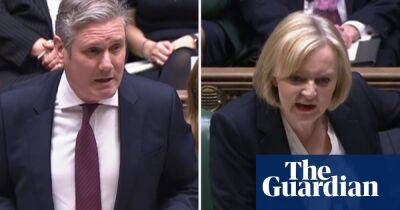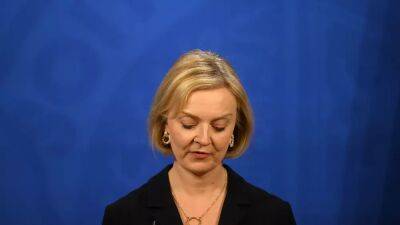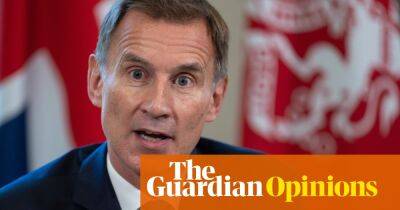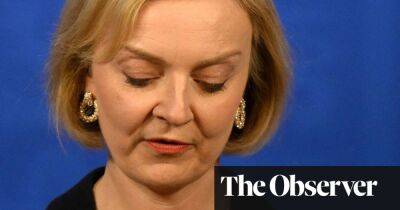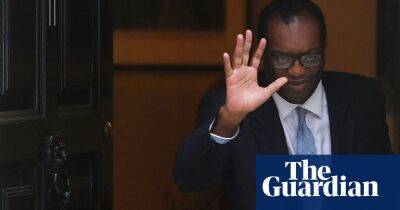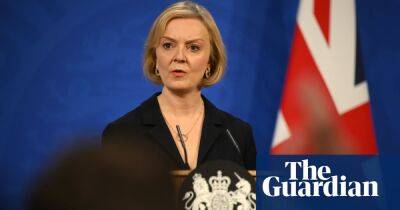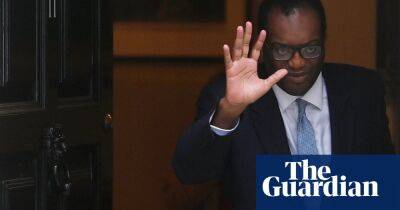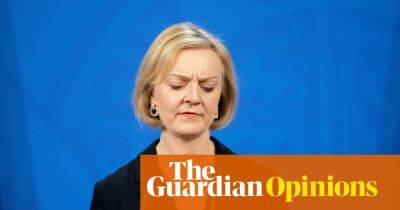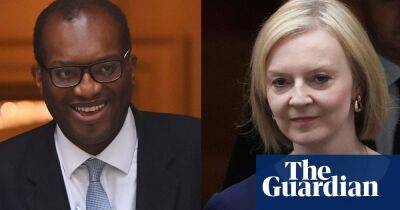The Observer view on Liz Truss and the sacking of Kwasi Kwarteng
An era has closed as summarily as it began. Chancellor Kwasi Kwarteng in his September mini-budget portentously announced a new era of growth, growth, growth driven by unfunded tax cuts on a stupendous scale. In one of the most astonishing turnarounds in British economic and political history, it and he survived just three weeks. Now it is an open question whether the prime minister and government can survive and even the Tory party in its current guise. Never has failure been so self-inflicted, so absolute and so richly deserved. Nemesis has followed hubris, but in so doing, testing the institutions of government to their limit and the lives of everyone.
It was a three-week spasm that is the culmination of a second, more long-standing, era, one that began in 1976 when the then chancellor, Denis Healey, flew early to an IMF conference to negotiate a giant loan to protect sterling at the price of swingeing public spending cuts. The postwar consensus over economic management died to be replaced by free market Thatcherism. By a neat symmetry of fate, Kwarteng flew home early from an IMF meeting 46 years later to be sacked and see the guts torn from his mini-budget. The era of libertarian free market economics that has had such a grip on the Tory party, and wider economic and political debate, has died in similarly dramatic fashion to the way it was launched.
For no Conservative chancellor will ever try to repeat what Kwarteng did. The collective authors – the gaggle of rightwing Brexiter Tory politicians centred on the European Research Group, the rightwing thinktanks, notably the Institute for Economic Affairs and the Adam Smith Institute, and the rightwing media cheerleaders – have been found out and humiliated. They
Read more on theguardian.com

